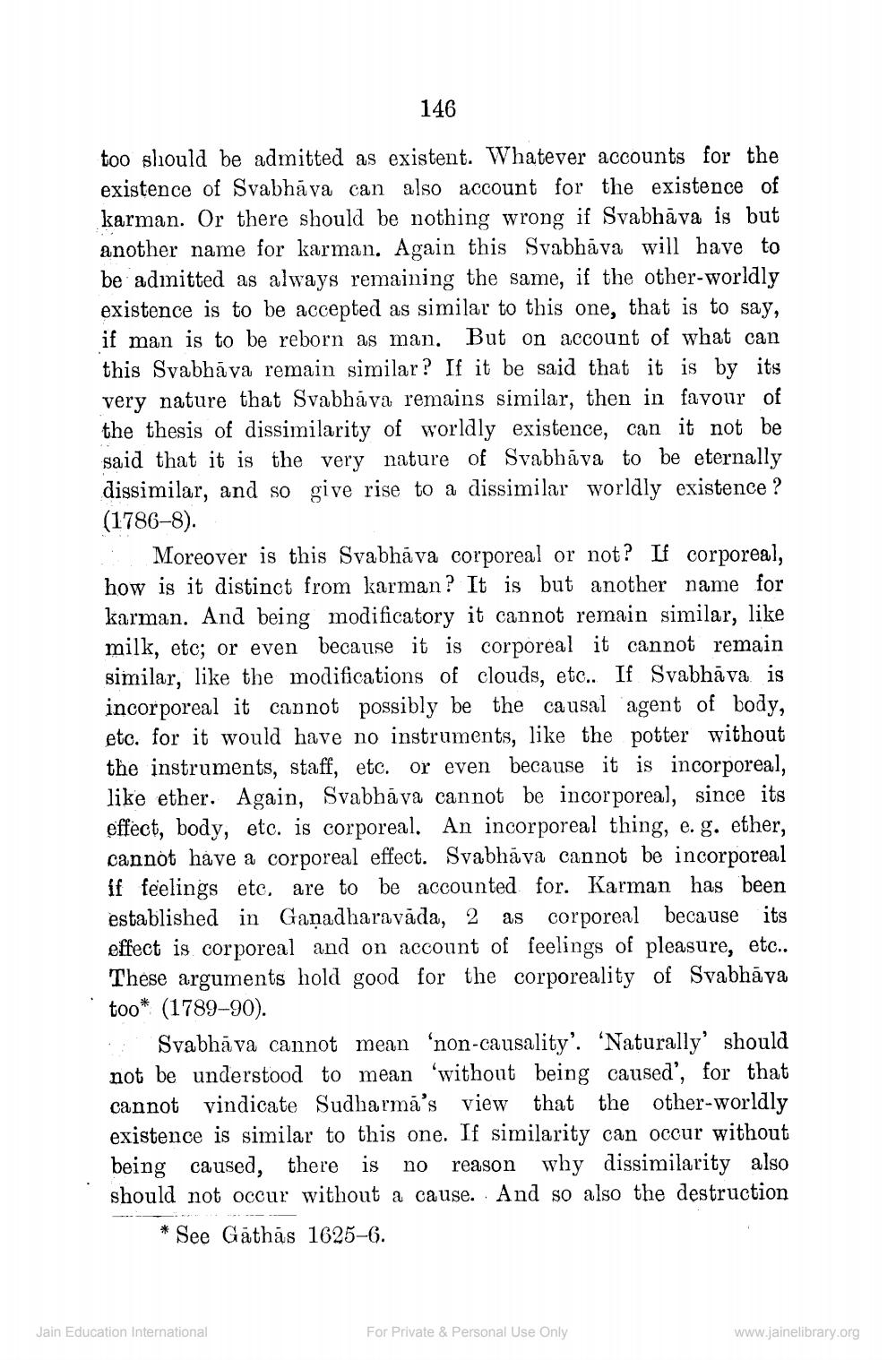________________
146
too should be admitted as existent. Whatever accounts for the existence of Svabhāva can also account for the existence of karman. Or there should be nothing wrong if Svabhāva is but another name for karman. Again this Svabhāva will have to be admitted as always remaining the same, if the other-worldly existence is to be accepted as similar to this one, that is to say, if man is to be reborn as man. But on account of what can this Syabhāva remain similar? If it be said that it is by its very nature that Svabha va remains similar, then in favour of the thesis of dissimilarity of worldly existence, can it not be said that it is the very nature of Svabhāva to be eternally dissimilar, and so give rise to a dissimilar worldly existence ? (1786–8).
Moreover is this Svabháva corporeal or not? If corporeal, how is it distinct from karman? It is but another name for karman. And being modificatory it cannot remain similar, like milk, etc; or even because it is corporeal it cannot remain similar, like the modifications of clouds, etc.. If Svabhāva is incorporeal it cannot possibly be the causal agent of body, etc. for it would have no instruments, like the potter without the instruments, staff, etc. or even because it is incorporeal, like ether. Again, Svabhāva cannot be incorporeal, since its effect, body, etc. is corporeal. An incorporeal thing, e. g. ether, cannot have a corporeal effect. Svabhāva cannot be incorporeal if feelings etc, are to be accounted for. Karman has been established in Gañadharavāda, 2 as corporeal because its effect is corporeal and on account of feelings of pleasure, etc.. These arguments hold good for the corporeality of Svabhāva too* (1789–90). : Svabhāva cannot mean ‘non-causality'. 'Naturally' should not be understood to mean 'without being caused', for that cannot vindicate Sudharma's view that the other-worldly existence is similar to this one. If similarity can occur without being caused, there is no reason why dissimilarity also should not occur without a cause. And so also the destruction
* See Gathās 1625-6.
Jain Education International
For Private & Personal Use Only
www.jainelibrary.org




